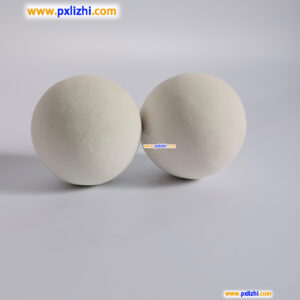
# Inert Ceramic Ball Applications in Industrial Processes
## Introduction to Inert Ceramic Balls
Inert ceramic balls are widely used in various industrial processes due to their excellent chemical stability, high temperature resistance, and mechanical strength. These small spherical ceramic pieces play a crucial role in many chemical and petrochemical applications, serving as catalyst supports, tower packing, and bed support media.
## Key Properties of Inert Ceramic Balls
Keyword: inert ceramic ball
The effectiveness of inert ceramic balls in industrial applications stems from their unique properties:
– High temperature resistance (up to 1600°C)
– Excellent chemical inertness
– Superior mechanical strength
– Low water absorption
– Resistance to thermal shock
– Uniform size and shape
## Major Industrial Applications
### 1. Petrochemical Industry
Inert ceramic balls are extensively used in petrochemical processes such as:
– Catalytic reforming
– Hydrocracking
– Hydrodesulfurization
– Steam reforming
They serve as catalyst supports and help distribute gases and liquids evenly throughout the reactor bed.
### 2. Chemical Processing
Chemical manufacturers utilize inert ceramic balls for:
– Acid gas removal
– Ammonia production
– Methanol synthesis
– Sulfuric acid production
Their chemical inertness makes them ideal for handling corrosive substances.
### 3. Environmental Protection
Inert ceramic balls contribute to environmental applications including:
– Flue gas treatment
– Wastewater purification
– VOC (Volatile Organic Compounds) removal
– Desulfurization processes
### 4. Other Industrial Uses
Additional applications include:
– Thermal storage systems
– Heat exchangers
– Furnace linings
– Insulation materials
## Benefits of Using Inert Ceramic Balls
The advantages of incorporating inert ceramic balls in industrial processes include:
– Improved process efficiency
– Extended catalyst life
– Reduced pressure drop
– Enhanced heat transfer
– Lower maintenance costs
– Increased system longevity
## Selection Considerations
When choosing inert ceramic balls for industrial applications, consider:
– Operating temperature range
– Chemical environment
– Pressure conditions
– Required mechanical strength
– Particle size distribution
– Specific surface area needs
Proper selection ensures optimal performance and longevity in the intended application.
## Conclusion
Inert ceramic balls have become indispensable components in numerous industrial processes across various sectors. Their unique combination of physical and chemical properties makes them ideal for demanding applications where reliability and performance are critical. As industrial processes continue to evolve and become more sophisticated, the role of inert ceramic balls is likely to expand further, offering solutions to new challenges in chemical processing, environmental protection, and energy efficiency.